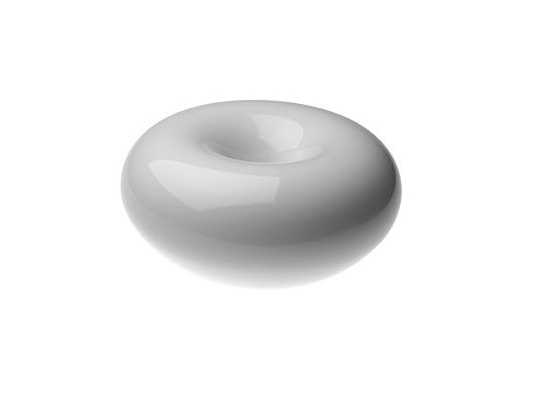Naoto Fukasawa: Common Sense
Ana Dominguez
It is true that as human beings we share a number of unconscious gestures in our relationship with objects. They are instinctive behaviours in which our mind does not participate in an active way, a no man's land that happens before, or independently of, the act of will.
Japanese designer Naoto Fukasawa has made this his area of work and, quite rightly, has called it "without thinking":
"Design should not try and fit different cultures, but human beings, who are the same in Europe, Asia or anywhere else. My way of working is called "without thinking" because thoughts are moderated and mediated by culture, unlike the body, so my designs are guided by the behaviour of human beings in a way which does not involve the act of thinking. This does not relate to emotions, but to function, although in a way, to be perfectly functional, the emotional side is also required. Function is shared by people even when they are not physically connected. When different people touch the same thing they can feel the same, even if there isn’t a physical connection, what is produced is an invisible connection through function, which is more interesting than obvious connections."
As Fukasawa tells me, this whole process is directly related to memory, to memories, although he does not refer to nostalgic issues, but to simple patterns of behaviour that the body remembers naturally, intuitively.
"This point can be reached from memory, but the kind of memory which is not in your head but in your hands. It is the type of memory that enables repeated gestures in a certain way, an active and everyday memory. This is very important, essential in the way to approach Design: Forget about the mind, do a job without thinking, concentrate on the fact that a body shares the same behaviour with other bodies when given the same context or environment."
His book, Naoto Fukasawa, published by Phaidon, gives a very enlightening example in this regard. It explains how, when entering a house in which there is no umbrella stand in sight, people automatically lean their umbrella against the wall placing the tip between two floor tiles which act as an umbrella holder. This is a common way to fix a problem "without thinking", which means, for instance, the disappearance of the object in its own function (a subject which has been the focus of one of his summer workshops on design).
"If you look at the iPod or iPhone, for example, you realize that they are designed in a manner that the way to use them relates to memories the body has of former ways of using things; gestures like how to open a notebook or turn pages, for example. Although physically they have nothing to do with actual pages, one uses his experience, his memory, to handle things although they are not physically there."
The designer tells me of walls that emit light, of the fact that even if we had enough indirect light in a room, we would still like the gesture of turning a switch on and off, because it is a memory to which we are accustomed. Is that not a paradox?, I ask:
"No. That is the future potential of technologies: Accepting that this is only natural; simply seeing that although we use electric lamps today, we have never stopped using candles ... "
Despite being a keen observer, Fukasawa is not interested in visual culture, the external appearance of things themselves:
"Aesthetic Beauty is not the goal of my designs. Of course, function is accompanied by some type of form and when both match that too becomes a form of Beauty. But just to do a beautiful form means nothing, it makes no sense. Form must always relate to some kind of meaning, whether in relation to behaviour or to the environment that relates to it, thus, the resulting shape of an object is just the most appropriate. Correct design is natural, honest and above all, "super-normal". It is not easy to create a beautiful object that works well in all kinds of environments and situations - that does not exist. A glass of water has to function well at least in this context, but if it is changed to a different function it will simply not work. When I was younger I did not think this way, I was trying to get something to function the same way in every context, but it turned out that it was not so, and then I stopped being interested in making beautiful things."

Naoto Fukasawa humidifier for plusminuszero

Naoto Fukasawa book by Phaidon























